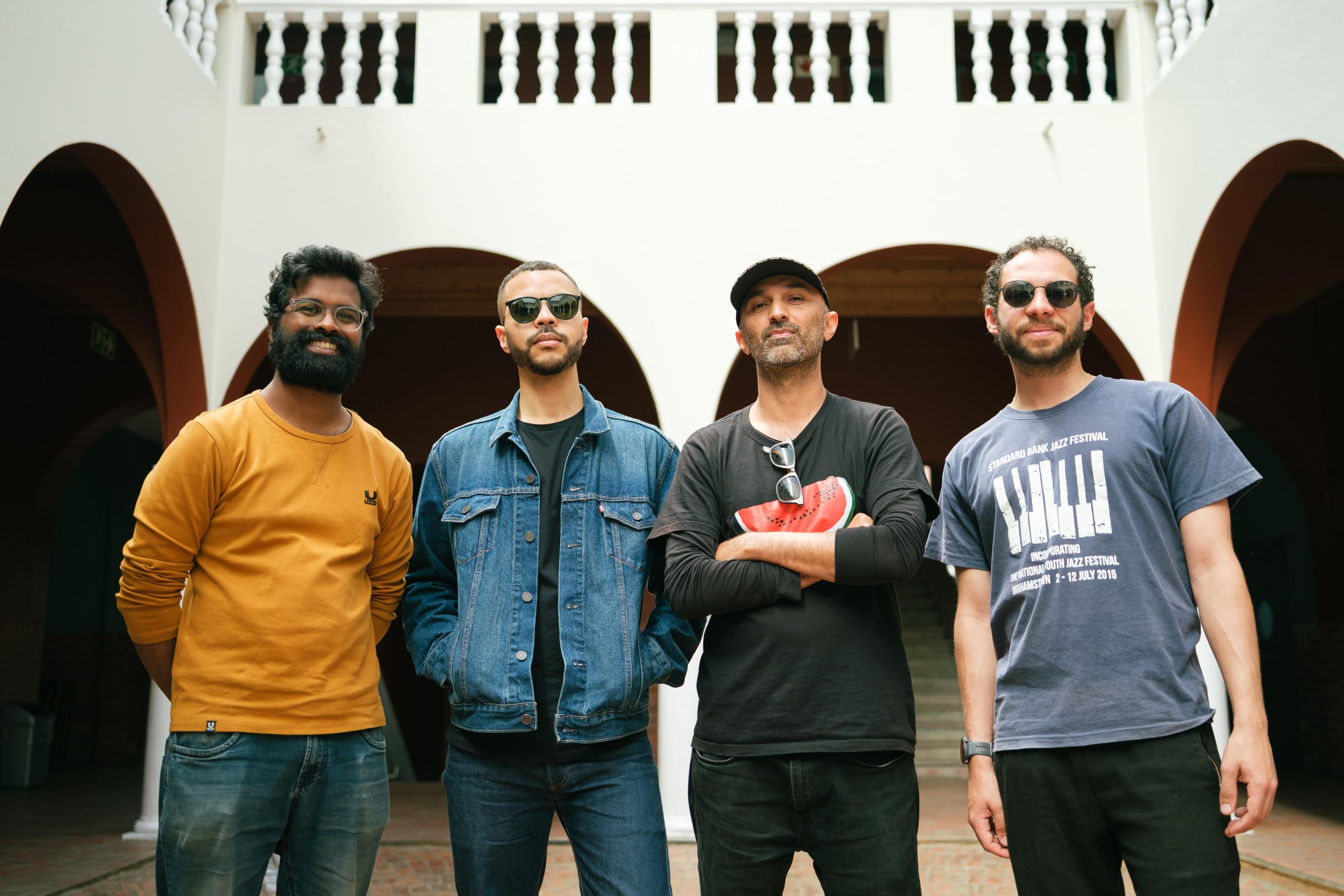
The Polyrhythmic Ensemble was formed in 2023 with the aim of creating new works based around research into contrapuntal and polyrhythmic African music.
As part of a funding initiative by the National Arts Council, guitarist Reza Khota was commissioned to compose music based on his PhD research specifically into West African guitar styles. Following the critical postcolonial framing of Kofi Agawu, the musical impulse follows the trace of modal African tonalities such as the odonson form of palm wine guitar and the Mande electric guitar forms of Guinea and Mali. Expanding further, the ensemble also looks to other contrapuntal forms such as the amadinda music of Uganda while incorporating these influences into the improvisatory and harmonic palette of jazz.
Central to the ensemble’s ethos is a notion of contrapuntality as a generative method. The idea of interplay as a basis for generating new ideas is viewed as central to the emergence of new forms in African music. As opposed to the work of the individual composer, this affirms a dialogic practise that is always in relation. Looking to other modes of engagement besides ethnomusicology, the contrapuntal method also draws on Edward Said’s thinking in reading empire from the periphery, advocating for a lateral encounter of cultures as opposed to the taxonomic forms of colonialism.
At the core of the ensemble is the patterning of two guitars. Playing in counterpoint with Khota is celebrated Jazz guitarist and composer Vuma Levin. The ensemble features compositions by the two guitarists. For the current tour supported by Concerts Sa, the ensemble includes Sean Sanby on bass and Gontse Makhene on percussion.
Reza Khota currently holds a postdoctoral fellowship in the UK-SA Bilateral Digital Humanities chair in culture and technics at the Centre for Humanities Research at UWC. His research takes a contrapuntal approach to the study of African music and posits a renewed aesthetic education both as an intervention into the relationship between the human and technology and as a basis for reimagining a post-apartheid future.
Vuma Levin is a lecturer in Jazz Composition, Theory and Analysis, and Performance at WITS. PhD Candidate at The University of Amsterdam via Docartes. His research focuses on the relationship between South African jazz, traditional indigenous transcription and how South Africa represents a situated expression of Black Atlantic spatial affiliation and time consciousness.
